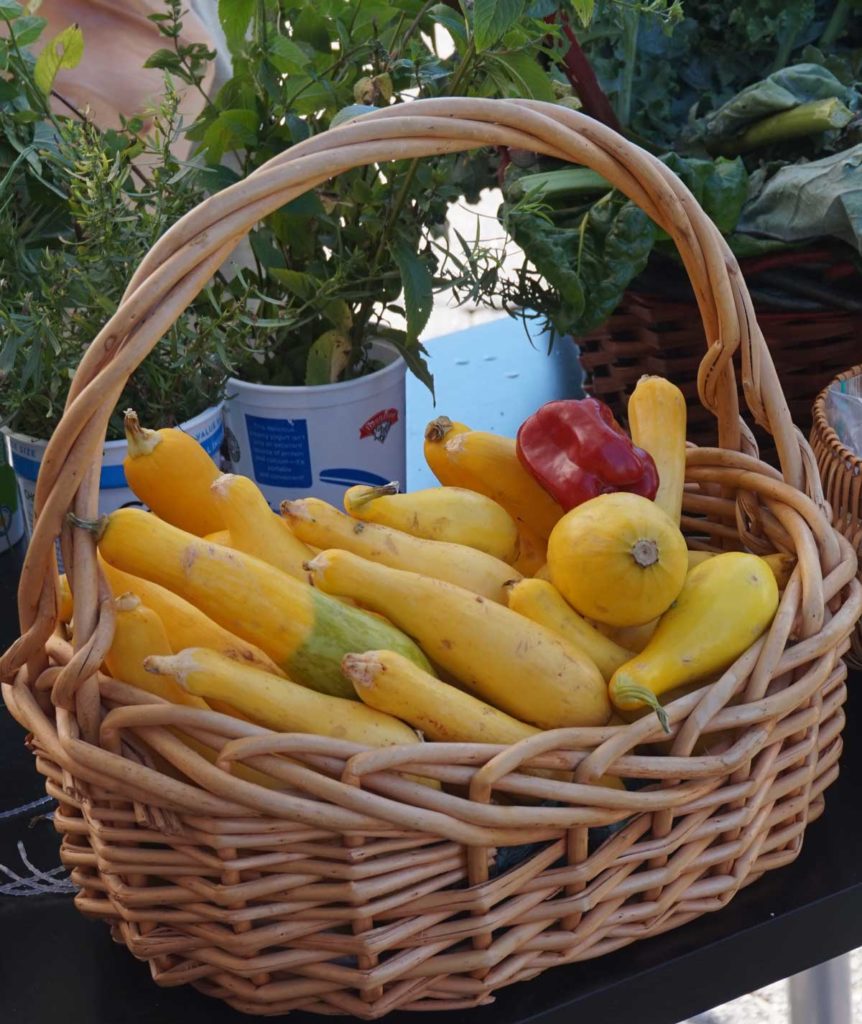
A burger for lunch, a bag of wilted greens in the trash may not be as obviously destructive to the environment as a private jet or a gas-guzzling car. But they are choices we make daily, and they matter.
– Annie Lowrey
HOW AND WHAT WE EAT MATTERS

Our diets are a big source of climate emissions not only in terms of agricultural production but also distribution, packaging, and trash generation. So, what do we do? Eat locally? Patronize small-scale farmers? Choose organics and fair trade? Avoid processed foods? Eat seasonally? One thing is clear: we must stop wasting food and eat less meat.
Americans waste nearly one-third of our food. That’s 130 billion pounds per year, most of which comes from households rather than restaurants, schools, or corporate cafeterias. Most food waste goes to landfills. By addressing this problem, we can save money, emit less carbon, alleviate the burden on landfills, reduce the number of animals subjected to life on factory farms, and help alleviate food insecurity.
What we eat matters, so consider these Bright Ideas:
- Get wise about expiration labels and stop throwing out perfectly good food. Most food is safe to eat as long as there is no evident spoilage, such as visible mold or an off smell. Use your senses.
- Figure out appropriate portion sizes and buy accordingly. Eat leftovers, store food in appropriate containers at the right temperature, and freeze perishables instead of letting them go bad. Shop from your refrigerator before heading to the store.
Making the transition to a plant-based diet may well be the most effective way an individual can stop climate change.
– Thich Nhat Hanh
- Eat less meat. Think of meat as an occasional part of your diet rather than a staple. Three-quarters of the world’s farmland is used to pasture livestock or raise crops to feed them. These practices contribute to deforestation, destroy natural carbon sinks, erode biodiversity, and use up fresh water.
Trading your rib eyes and cheesesteaks for lentils and tofu is one of the best things you can do as a consumer for the environment.
– Annie Lowrey
Small Steps
Rather than taking an all-or-nothing approach, it would be far better if everyone reduced meat consumption by 40% rather than for 3% of the people to cut it out entirely. So, take small, meaningful steps to reduce your meat intake. How about Meatless Mondays (and Wednesdays & Fridays) as a starting point? Meat substitutes made from plants are key to minimizing disruption to established ways of cooking and eating.
Diets that are good for the planet tend to be healthier for people, too. Changing our diets even in small ways may help us avert catastrophe.
Author’s Note: Annie Lowrey’s article in The Atlantic, “Your Diet Is Cooking the Planet,” published April 6th, 2021, is largely responsible for our content this month.
Bright Ideas is brought to you by Portland Climate Action Team which, during the pandemic, meets online the 4th Thursday of the month, 6-7:30 p.m. All are welcome to join in. FMI: portlandclimateaction@gmail.com.





